Sarah Chorn's Blog, page 29
October 17, 2018
Author Talk | The Solitary Nature of Writing
Hi.
Occasionally you’ll start seeing “Author Talk” in the subjects of my posts. Those will be the posts where I’m not reviewing or talking about books. Rather, I’ll be talking about being an author. I’ll start weaving them in here and there, probably not too often, but on the occasion. If you’re all, “Hey Sarah, what the hell are you publishing?” Well, check this link out.
Anyway, I was in a conversation with a bunch of writers a while ago about how solitary writing is, and how we so often get stuck in our own heads, and then we sort of just eat ourselves. It turns into a vicious cycle. The fact that we are often our own worst critics doesn’t help the matter. This results, in someone like me, with a whole lot of festering self-doubt, and a truckload of inferiority complex which I devour alongside a dinner of “why do I even try?”
I end up looking at everything I produce and questioning its validity or its worth. Why should it exist? It’s not worthy of being born.
The thing is, I went through this with my photography, too. There’s a lot of solitary time in art, a lot of being stuck in your own head, trying to translate what you see into a medium that others can understand, enjoy, or appreciate. As an editor, I come across the gap in the work I edit quite often – the author sees the scene so clearly, but something gets lost in translation and that scene might not come across to me the way it should. It’s not a lost cause, we just need to dig around a bit, author and editor, and find the missing pieces. I help them figure out how to bring their vision to life in my mind.
In photography, I am freezing moments in time, and I am trying to show to you the exact way the world was at this one moment, in only the way I could possibly see it, because I am the only me here.
 This was taken at Cedar Breaks National Monument. Check out more of my photography at 500px.com/sarahchorn
This was taken at Cedar Breaks National Monument. Check out more of my photography at 500px.com/sarahchornWe talk about echo chambers a lot right now. The liberal echo chamber, the conservative echo chamber, and what have you. What we don’t really talk about as much is the artist’s echo chamber. You know, the one we create in our own minds and souls, the one that sort of turns into a place where, in me, it is filled with self-doubt, eternally questioning my worth as an artist and the things I produce. We don’t talk about how it is absolutely necessary to be locked in your own soul, your own mind to produce, but sometimes the solitary nature of producing art can be a double-edged sword. It is necessary, and it consume us, if we let it.
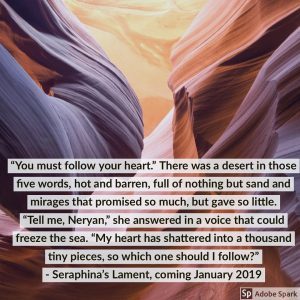 When I started making my way in the photography world, I realized what was happening. I saw everything I produced as a product of an inferior mind. Everyone else was so much better at it than I was, so why try? I love photography, but this incessant self-doubt, this constant questioning was doing a few things for my art. First, it was making me hate the art of photography. Secondly, it was causing me to stop wanting to try to improve my art, or even try my hand at it at all. When I realized what was going on, this vicious mental cycle I was in, I knew I had to break it or I’d lose my photography forever. I joined a professional website where I showcase my best art and get insights and feedback from it. This has resulted in me not only improving my craft, but the constant thumbs-up and comments from other photographers have really kept me loving what I produce, and seeing that it doesn’t just have value to me, but value to other people as well.
When I started making my way in the photography world, I realized what was happening. I saw everything I produced as a product of an inferior mind. Everyone else was so much better at it than I was, so why try? I love photography, but this incessant self-doubt, this constant questioning was doing a few things for my art. First, it was making me hate the art of photography. Secondly, it was causing me to stop wanting to try to improve my art, or even try my hand at it at all. When I realized what was going on, this vicious mental cycle I was in, I knew I had to break it or I’d lose my photography forever. I joined a professional website where I showcase my best art and get insights and feedback from it. This has resulted in me not only improving my craft, but the constant thumbs-up and comments from other photographers have really kept me loving what I produce, and seeing that it doesn’t just have value to me, but value to other people as well.
It helped me realize I am not an echo chamber. It has helped break through my negative self-talk.
Oh, it’s still there. Of course it’s still there, and there’s a value in realizing that art is never perfect. It can always be improved upon, but there’s a point where that voice chokes the artist, and sharing my art was that thing that helped me break the stranglehold my negative echo chamber had on me.
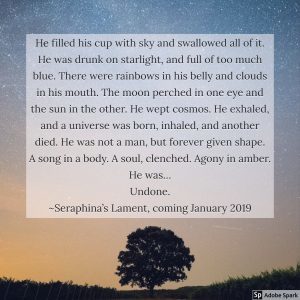 It’s scary to take a chance, to put yourself out there and say, “This is something I made. Me, and me alone. Whatever is right, and whatever is wrong, is on me. I own this. Here, world, judge my craft.” There is truth in the old words – once you put art in the world, you no longer own it. That vulnerability, that loss of control, it’s terrifying. We do not like to expose our underbellies to the world and sit idly by while the world savages us.
It’s scary to take a chance, to put yourself out there and say, “This is something I made. Me, and me alone. Whatever is right, and whatever is wrong, is on me. I own this. Here, world, judge my craft.” There is truth in the old words – once you put art in the world, you no longer own it. That vulnerability, that loss of control, it’s terrifying. We do not like to expose our underbellies to the world and sit idly by while the world savages us.
But that’s also what makes art so potent. It’s that belief that whatever you’ve created, it has value outside of yourself, and deserves to be birthed into a world that could be made better by its presence.
Anyway, I noticed my echo chamber was getting nice and warmed up with my writing, and with a book coming out, I just can’t afford time wasted mired in self-doubt and insecurity. I am going to put words into the world, and I need to own that. When this conversation about “inferiority complex” got fired up with some author friends, I realized that I was starting the process. I would devour myself, and if I kept staying locked in my own head, staring at all the things that make me worse than every other author out there, I’d never achieve my dream, and my book, my words, this part of my soul, with wither on the vine.
I remembered my days in photography where I was questioning why I even try to hold a camera because 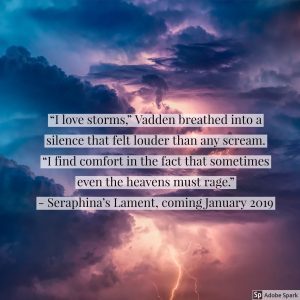 obviously I absolutely suck at it, and how I broke through that. I broke through it by sharing, by taking a chance, and putting myself out there. I broke through it by refusing to let myself stay locked in my echo chamber. I took a risk, and I showed my art. Some have failed, some have had great results, but I did it, and I learned a lot, and I’ve continued improving, and loving my craft.
obviously I absolutely suck at it, and how I broke through that. I broke through it by sharing, by taking a chance, and putting myself out there. I broke through it by refusing to let myself stay locked in my echo chamber. I took a risk, and I showed my art. Some have failed, some have had great results, but I did it, and I learned a lot, and I’ve continued improving, and loving my craft.
I decided to do the same thing with writing. More, I realized I had to. To break through my echo chamber, I must share.
Each day, after I go through some revisions, I find a snippet from what I just revised that I am stupid-proud of. I pretty it up with a picture that somehow fits the excerpt, and I post it online. Not many people seem to see it, even fewer people care, but it helps me immensely, to see something I’ve created in the world, getting the occasional thumbs-up, sometimes a comment. It’s a trickle, but it’s enough to realize that my art has value outside of myself, enough to survive on its own, and someone, somewhere, liked it enough to read it.
That pushes me. That keeps me going. That curbs the dark voice inside whispering to just give up.
 So my big advice, as an artist, as a person who peddles in the act of creating in various mediums, is to take a risk, and always, always stare something you’ve made that you’re proud of in the face each day. Remind yourself of your worth, and your ability, and keep pushing. That dark voice is always there, whispering “why try, so and so does it so much better than I could ever hope to,” but it isn’t quite so loud or hungry for my self-worth anymore. My daily snippets have helped me immensely, not only in my value as an author, but also it’s kept me pushing forward, and realizing that my dream is attainable, despite all of the “You can’t possibly think you’re capable of doing this, Sarah….” that I’ve got singing in my skull.
So my big advice, as an artist, as a person who peddles in the act of creating in various mediums, is to take a risk, and always, always stare something you’ve made that you’re proud of in the face each day. Remind yourself of your worth, and your ability, and keep pushing. That dark voice is always there, whispering “why try, so and so does it so much better than I could ever hope to,” but it isn’t quite so loud or hungry for my self-worth anymore. My daily snippets have helped me immensely, not only in my value as an author, but also it’s kept me pushing forward, and realizing that my dream is attainable, despite all of the “You can’t possibly think you’re capable of doing this, Sarah….” that I’ve got singing in my skull.
We aren’t kind enough to ourselves. Being kind is a risk. It’s scary. Just as scary as making ourselves vulnerable, in its own way. Be kind to yourself. Dress what you’re proud of up, and make yourself look at it. Cut through that echo chamber however you need to.
The world is a dark place, and we need more art in it. Flatter yourself, and keep pushing on. Do something nice for yourself each day. Shake hands with something you’ve made that you’re proud of, and show it off.
After all, you are the only one who can make what you made the way you made it.
October 10, 2018
#SPFBO 2018 | Threats of Sky and Sea – Jennifer Ellision
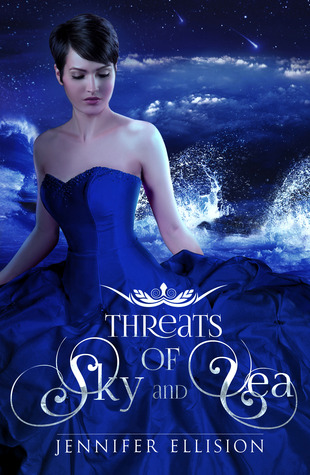 About the Book
About the Book
Sixteen year-old Breena Perdit has spent her life as a barmaid, innocent to her father’s past and happily free from the Elemental gifts that would condemn her to a life in the Egrian King’s army. Until the day that three Elemental soldiers recognize her father as a traitor to the throne and Bree’s father is thrown in jail—along with the secrets from his last mission as the King’s assassin. Secrets that could help the King win a war. Secrets he refuses to share.
Desperate to escape before the King’s capricious whims prove her and her father’s downfall, Bree bargains with him: information for their lives. It’s a good trade. And she has faith she’ll get them both out of the King’s grasp with time.
But that was before the discovery that she’s the weapon the King’s been waiting for in his war.
Now, time is running out. To save her father’s life and understand her own, Bree must unravel the knot of her father’s past before the King takes his life– and uses her to bring a nation to its knees.
360 pages
Published on May 20, 2014
Author’s webpage
Buy the book
This book is part of the SPFBO.
—
This is another book where I just really love the cover. It really seems like I have some incredibly good cover art in my batch of SPFBO books this year, but this one has an elegance to it, and a color scheme that just works for me. So, bravo on that front.
Threats of Sky and Sea is a young adult book, featuring a sixteen-year-old protagonist. On a random aside, I do think that this year I’ve got more young adult books than I’ve ever had in any other year. I will admit, I think that’s kind of awesome. I enjoy seeing the SPFBO branching out, getting more entries and more of an audience in more subgenres.
Now, back to my review. This book features a sixteen-year-old protagonist who lives a rather sheltered, innocent life as a barmaid. Breena is a character that I honestly didn’t expect to like. She’s kind of the hopeful, delightful, beautiful character that tends to instantly fall into the “annoying character” slot on my radar. However, Breena really worked for me. I mean, there were times when she felt a little immature, maybe a touch underdeveloped, but she fits perfectly into the world that Ellison has crafted, and that effortless fit made her utterly believable.
That’s not to say that there aren’t clichés here. This is sort of a tropey story in the fact that it’s sort of playing on the “chosen one” ideal, and the “mysterious past” thing, but I’ve said it a thousand times and I’ll say it a thousand more. Tropes are tropes for reasons. Tropes aren’t necessarily a bad thing. If the author takes a trope and makes it their own, completely owns it, then I’m all about that.
The book isn’t perfect. Sometimes it did feel a bit too predictable, a bit too paint-by-numbers, but there was enough unique here that it just worked for me. This was the kind of book I could just sit down and enjoy with very little effort on my part. Sometimes it’s nice to read those sorts of books, and the fantastic writing really helped.
I enjoyed the magic system quite a bit, but I will admit that I find myself rather enamored in elemental-based magic systems. There’s nobility here, a young woman entering a noble court at a young age, a love interest, and all that stuff. The mystery of Breena’s father, his past, and how it sort of hangs over everything she is and everything she’s doing was very well done.
There isn’t much in this book that I didn’t see coming, but I enjoyed it despite that. I loved how Breena evolved, how the world was crafted, how the magic system developed and all the intricacies involved in that. Breena being uprooted, entering a different social world, and then having to navigate those waters while she learns the truth of who she is was likewise well done.
Threats of Sky and Sea isn’t perfect. It feels kind of cookie-cutter, it’s pretty predictable, but I really sank into this one and devoured it. The thing is, there are some books that you can enjoy just because you want to sit back and enjoy something. Sometimes your brain just needs a break, and you want a story to unfold for you, entertain you, and dazzle you. This book did just that. If you’re a fan of young adult books and you haven’t read this one yet, you’re missing out.
4/5 stars
October 8, 2018
#SPFBO 2018 | Blade & Rose – Miranda Honfleur
 About the Book
About the Book
A kingdom in turmoil or the love of her life. Which one will she save?
Elementalist Rielle hasn’t heard from her best friend in far too long. Yet no one at the Tower of Magic seems to care about Olivia’s silence, or the curtain of secrecy surrounding the distant capital. Before Rielle can investigate, she’s assigned a strange new mission: escort a paladin named Jon across the kingdom.
When whispers reveal mercenaries have killed the king, taken the capital, and that no one is coming to help, Rielle can’t leave Olivia in peril. But as infamous mages and deadly assassins hunt Jon, she can’t leave him unprotected either—especially as she finds herself falling for his strength, his passion, and his uncompromising goodness. Her past returns to haunt her, a werewolf stalks their steps, and an ancient evil is gathering, yet the restraints forbidding their love strain and snap one by one.
Saving Olivia and the kingdom means defying orders and sacrificing her every ambition, and could mean losing the man who’s become so much more to her than a mission. Which will she choose: her best friend and the kingdom, or the love of her life?
Dive into a medieval world sensual and dark, full of magic and greed, love and blades, where factions vie for influence and there are no easy choices.
678 pages
Published on October 7, 2017
Author’s webpge
Buy the Book
This book is part of the SPFBO.
—
First things first, this book clocks in at 650 pages, which is pretty long. Now, depending on the audience, this could be a good or bad thing. I mean, the general rule of thumb is, if you don’t like the book you’re reading, 650 pages will feel like a slog through eternity. However, if you dig the book, 650 pages will feel like nothing. The other thing you may want to be aware of is that there’s a bit of a cliffhanger ending, so beware of that. If you dig this book, then you’ll want to buy the second one right away.
Now, 650 pages is a bit long, and I did feel like some bits of this book could have been streamlined, cut down, narrowed, and focused a bit more, thereby decreasing the overall size of the thing. Some of these scenes felt a bit repetitive, and filler. It had the overall effect of making the book feel like it had really good forward momentum, and then it just sort of got bogged down and lingered a bit too long in places before it recovered itself and started moving along again. However, this really wasn’t a deal breaker for me. It’s just something I was aware of as I read.
Blade & Rose isn’t quite a young adult, but it isn’t quite a full-blown adult either. Maybe I’d place this as a crossover between the genres. It’s good for the older YA group and into the adult group. Some of the characters felt nice and grown up with life experience and all that behind them, but others never quite moved past feeling like teenagers caught up in emotions too strong for them to really handle.
The plot is divided between romance and relationships, and political intrigue. I say divided, but there were parts of the book where it felt almost entirely reliant upon relationships and romance, with plenty of angst and a kind of love triangle and things of that nature. Again, not a deal breaker, but if you aren’t into romantic fantasy, you might want to overlook this one. While there is a lot of other elements here, I did overwhelmingly feel like romance might be where the bulk of this book rests.
That being said, there’s a lot going on here, and a lot being established, from an interesting magic system, to a world steeped in history and conflict, to people with divided, confusing loyalties and the interesting relationships that form when people from opposing sides and with opposing viewpoints are thrust together in tense situations.
The writing was really wonderful. I felt like Honfleur (awesome last name, by the way) was instantly comfortable with the story she was telling. There was no real warming up period, she just knew what she was doing and she owned it and I absolutely loved that about this book. That being said, I felt like things started strong and then kind of tapered off around the halfway point. Some characters got stuck in emotional ruts and never quite developed past that point. I felt like Rielle was maybe being pulled in too many directions and it wasn’t quite realistic. There were those filler parts I mentioned above, and the insta-love didn’t completely work for me.
That being said, this book was quite a ride, a huge adventure, and a lot of moving parts. The magic system was interesting, the plot was layered and complex, and the writing was wonderful. If there were some flaws in the book, they were easily overlooked in favor of the interesting, character-driven plot. This is a solid start to a series that will likely find plenty of fans amongst those who enjoy romantic fantasy. In fact, I was just editing a romantic fantasy book for an author who is quite well known among romantic fantasy readers, and I thought of this very book and realized that the two fanbases would probably intersect quite nicely.
Is it perfect? No, but nothing is. What Blade & Rose is, is one hell of a strong start to a series I’m personally interested in continuing with.
3/5 stars
September 24, 2018
Announcement | Seraphina’s Lament – January 2019
This will be long, but hold on. It’s worth it.
One of my first memories from Kindergarten is of writing a book. The book was about a family of bears stuck out in the rain in the woods. I loved writing it. I remember being completely taken away with this story. I cut out the pages, folded them in half, stapled the middle and then added ribbon so it looked cuter. I illustrated it, and then I proudly gave it to my teacher, who promptly read it, stopped the entire class from whatever we were doing, and then read it out loud to them. I was, maybe five, and I remember thinking, “I want to write books when I’m big.”
Time passes as it does, and dreams come and go, but this one never faded. I was talking to my mom a while ago, and she said, just in passing, “Sarah, I’ve never known a time in your life when you weren’t writing a book. You’ve always, always been writing something.”
When I was in sixth grade, I remember writing a memoir about my family. When I was in high school I wrote a lot of stories about immigrants, outsiders who I related to because I also felt like an outsider. When I was in college I tinkered with fantasy. These usually always ended half written and filed away on some forgotten corner of my computer, but they’ve always been there.
A year and a bit ago, I wrote a book and outlined an entire trilogy. I had a few author friends pass my name on to their agents. I sent off my first three chapters and got a few offers. I ended up accepting one offer for representation that turned into a train wreck and very much put me on the path I’m on now. Suffice it to say, sometimes things happen if you’re not careful, and it seems like the end of the world at the time, but if you keep your eyes open, other doors open for you.
I thought I could move past this book. I’ve written three others since this experience has happened and I figured I could let this one just sit in the back and stew along with all the other books I’ve written and forgotten about over the years, but in those quiet moments where it was just me and my thoughts, it would be this book I’d be thinking about.
The other day, I decided to finally have a heart-to-heart with myself. Some stories just need to be told. Some words can’t be unwritten. Some books can’t be trunked. For whatever reason, this story needed to be told. Now, there were issues that presented themselves. Due to matters that I won’t touch on, the submission to a traditional publisher has largely been ruined for this book, which basically trashes it for the series itself. That relegates me to either changing the name of the book and trying again (I don’t want to do that.), or self-publishing.
Self-publishing is daunting, but I spent the past few weeks researching just about every aspect of it that I can possibly research. I spoke to both industry insiders and self-published success and failure stories. I read everything I could, and I narrowed down my concerns. One, I don’t want to lose control of my books. I felt like I had no control before, and I never want to feel like that again regarding something I’ve created. Two, I don’t want to have a third party (agent, publisher etc) limit my creative process by telling me what I should/shouldn’t be writing. Three, I wanted to be able to pick the people I work with, editors, cover artists, formatters and the like.
The downside is marketing. I know next to nothing about marketing. However, when I talked to people, I was consistently told that the real downside of self-publishing is the amount of work that has to be put into it. That narrowed down the questions I had to ask myself. Am I willing to put in the work required? Does the scale weighing “retaining control” and “workload” balance out in my mind?
The answer, for me, dear reader, is resounding YES.
After doing research, listing out what I’d gain and what I’d lose by self-publishing, I realized that there are far more bullet points in the “pros” than “cons” column. I also remembered that moment in kindergarten, and I realized that I don’t have to wait for someone else to make my dream come true, I can make my own dream come true, and I can do it whenever the hell I want. Really, the only thing holding me back is myself, my own fear, my own trepidation and anxiety. It’s a big leap, to put yourself out there like this.
Enter Seraphina’s Lament, book one in The Bloodlands trilogy.
Tentatively set to drop in January (though, depending on how things move, it could move to February 2019), this book has been my baby for nearly three years now. I’ve been eating, drinking, and sleeping this beast. It’s been in all of my quiet moments, every beat of my heart, and in the low animal throb of my mind. This book is going to be the one that will help me realize that dream I discovered when I was five.
Let me tell you a bit about it.
Seraphina’s Lament has required an absolutely massive amount of research. Set in a secondary world, this series is loosely based on the Russian Revolution and the Holodomor. What is the Holodomor, you may be asking? Well, back in the 1930’s, Stalin decided to implement collective farming in Ukraine. He set about destroying the local cultures by banning Ukrainian-based education, language (Russian was the official language), religions, holidays, and traditions. The collective farming, taxation, ration system, and moving about of grain turned this once fertile breadbasket into a wasteland. Stalin, in an effort to teach these farmers who rebelled against all of these changes a lesson they’d never forget, ended up starving and killing millions in this area. It was an absolutely dark, horrible period of history which was largely unknown until records were released sometime around the 1980’s.
I have exactly 0% of my DNA from this region, so this required a ton of research on my part. I want to get it right and bring some of these events truthfully into the world I’ve created, and I do. Some of the stories I tell in this book are inspired by eyewitness accounts I’ve read in these following books. Some of the books I’ve used for research are:
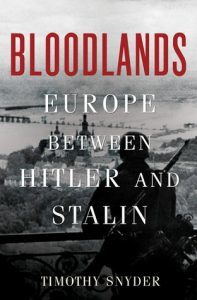
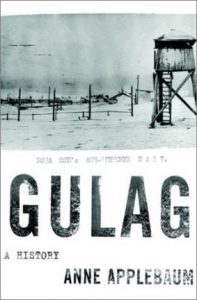
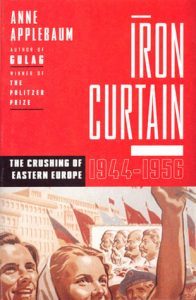
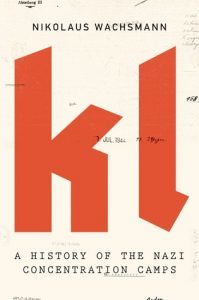


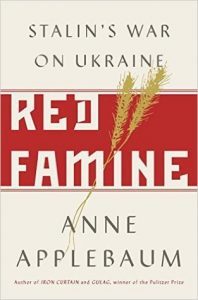
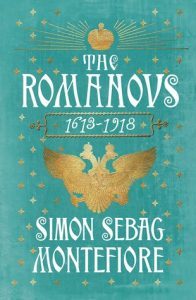
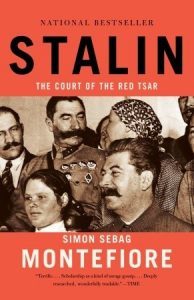
For what it’s worth, I highly recommend all of them. There’s also an exhaustive list of online resources but I figure no one really cares, so I’ll leave it here.
Now, as you can imagine, Seraphina’s Lament is incredibly dark. You can probably get that gist just from the research I’ve done on the events I’m using as an influence for much of my world building. This isn’t a light or happy book. It’s not fluffy. A lot of people die, and some of it is quite graphic and uncomfortable. That being said, there are other elements at play here, like relationships, love, hope, a drive to succeed in the face of adversary, people who refuse to give up when everything is telling them to do just that.
And chronic pain. One of my characters has my chronic pain and a similar spine/leg injury to mine, which was really intensely awesome for me to add into the book just because. Shoutout to all my chronic pain people out there. We need to see ourselves in the books we read and write.
I pretty much fail at back cover copy, but here’s the one I’ve got going right now:
The world is dying.
Politics is no ally to the Sunset Lands. The switch from monarchy to collectivism hasn’t been easy, and the loss of traditional ways in the name of social progress has made life hard. Now, an unending draught makes it downright impossible. Famine is rampant. Hunger makes no friends and has few allegiances.
In Lord’s Reach, Seraphina, a woman of rare talent, escapes from slavery and puts into motion a series of events that will change everything. Meanwhile, the Bone Lord is on the march from the west, with death and skeletons trailing in his wake, and hunger incarnate with a belly full of souls is approaching from the east. Soon, these paths will converge and shake the world.
The Sunset Lands are ripe for revolt, but not every revolution is worth having. Old elements are waking up, and people are changing.
First, you must break before you can become.
I suck at writing these things, so I’m pretty sure it will change before the book drops, but this is the gist of it as of right now.
I’ve hired an incredible artist for my cover art. I’ve got an amazing developmental editor lined up, and a fantastic formatter. I am on the hunt for an excellent copy editor who won’t break the bank, but it’s pretty cool to have all of this lined up, locked in, and ready to go as soon as my revisions are done.
So, there you have it. I’ll drop the cover art somewhere when I get it, which won’t be for a bit, and generally keep you people informed as events progress. I’m neck-deep in revisions right now. If things go as planned, book two, An Elegy for Hope will drop in the autumn/winter of 2019 and book three, A Requiem for Fate will drop in the spring of 2020.
I’m also going to start a newsletter, where I’ll do… something, I’m not exactly sure what, but it’ll be a newsletter and it will have things in it. Thrilling, right? I’ll probably drop it once a month once I figure out its grand purpose for existence. Likewise, I’ll announce when I’ve got that all ironed out.
I’ll probably post things occasionally, either here or on the newsletter. Snippets, and research nuggets and the like. Who knows. I’m still trying to feel my way around this whole “interacting with people” thing.
And, that’s about it. Maybe it’ll fall on its face. Maybe it’ll be a huge dumpster fire, but at least I can say I’ve done it, that I tried, and I put something out there that’s been burning inside of me for years. That matters to me.
I’m publishing a book, folks. Stay tuned for details.
September 10, 2018
Nonfiction Review | Queens of the Conquest – Alison Weir
 About the Book
About the Book
The story of England’s medieval queens is vivid and stirring, packed with tragedy, high drama and even comedy. It is a chronicle of love, murder, war and betrayal, filled with passion, intrigue and sorrow, peopled by a cast of heroines, villains, stateswomen and lovers. In the first volume of this epic new series, Alison Weir strips away centuries of romantic mythology and prejudice to reveal the lives of England’s queens in the century after the Norman Conquest.
Beginning with Matilda of Flanders, who supported William the Conqueror in his invasion of England in 1066, and culminating in the turbulent life of the Empress Maud, who claimed to be queen of England in her own right and fought a bitter war to that end, the five Norman queens emerge as hugely influential figures and fascinating characters.
Much more than a series of individual biographies, Queens of the Conquest is a seamless tale of interconnected lives and a rich portrait of English history in a time of flux. In Alison Weir’s hands these five extraordinary women reclaim their rightful roles at the centre of English history.
496 pages
September 26, 2017
Published by Ballantine Books
Author’s webpage
Buy the book
This book was an ARC sent by the publisher in exchange for an honest review.
—
I tend to read a lot of nonfiction when I edit. There are a few reasons for this. First, I don’t want to cross streams – get the book I’m editing mixed up with the book I’m reading. Since I absolutely do not ever edit nonfiction, that’s not a risk with these books. Secondly, I have to read a book all the time. If I don’t have at least three books going on the side of whatever project I’m working on, then you know something is very, very wrong.
So, I’m in the middle of two editing projects right now, and as a result, I’m reading a whole ton of nonfiction books.
I’m a sucker for this time period. There isn’t much that is really known about it. There wasn’t a whole ton of writing. It was a thousand years ago, so what has survived has, inevitably, been ravaged by time. There are a lot of holes in what we know, and a lot of places for historians to poke at, and guess about. However, the mystery of it really is probably what attracts me to it so much. Now, Alison Weir (mainly, not always) writes about English queens, and that’s just even more interesting to me. Women were so overlooked, but so often they had to be the backbone, and use creative measures to influence events, and their subtle, yet powerful touch is seen all over the pages of history.
The idea of Norman queens, those women from the 1000’s are so overlooked, mostly just pious figureheads that got married at twelve, popped out babies, and prayed diligently while their husbands did all the busy work are so unknown they are just names rather than people. When the publisher confronted me with this book and asked if I wanted to read and review it, I basically started foaming at the mouth. ARE YOU KIDDING ME? ALISON WEIR IS ATTACKING NORMAN QUEENS? HELLLLLLLLLLLLLL YES.
This book covers a few queens, focusing on Matilda of Flanders of the Bayeux Tapestry fame, Matilda of Scotland, Adeliza of Louvain, Matilda of Boulogne, and the Empress Maud. A book like this, divided between queens, was a good choice for Weir. There isn’t a whole lot for historians to chew on, and there’s a lot of guessing, a lot of filling in the gaps with potentials based on what little evidence she has found. The way this book is broken down gives readers a meaty chunk of each woman’s life, an overview of the important details, and a feel for how they touched history and altered events current to their time while staying away from getting bogged down in too many details or too many suppositions.
One reason I love reading Weir’s books is that they are just incredibly readable. She’s telling a story as much as educating her readers, and I love that about her. She has a great knack for boiling down complex events and making them easy to digest. She also has a skill with keeping the narrative flowing, and interesting, when other authors would get bogged down in certain points and sort of meander there a while. Weir’s books always move forward, no matter what, and she builds up each subsequent event with the nicely informed, easily understood events that came before.
Readers who enjoy deep dives will probably love this book while finding some issues with it. First, as I said above, there really isn’t much known about women at this time period, and while queens have better documentation, it’s still nowhere near as much as could be found about their husbands. That means that there are a lot of holes, and a lot of places where Weir gives suggestions of what could have happened, based on the cultural norms of the time, available evidence, stories that had been related and recorded at the time and things like that. She’s clear about when she’s doing this, but to be honest, it’s unavoidable with these women, and I think Weir does a great job with informed guessing, letting her readers know she’s doing that, giving a few options, and telling readers which one she leans towards and why.
That being said, if you’re a nonfiction reader who likes to know the whys and hows of things and all those tiny details, you won’t really find it here.
Secondly, this book does cover more than one queen, which means more than one generation. It spans a couple hundred years and numerous influential women. You don’t really get deep-dives here, more like educated, deep-enough overviews. You’ll learn something, but you won’t come away from it knowing what color Maud’s underwear is if that makes sense.
So, this leaves us with my summary.
Alison Weir is always a hit for me with her nonfiction work. I am a devout reader of hers. I was absolutely tickled when I learned she was writing this book and I’d get to review it. It’s so good. She crafts interesting, intricate stories of these important women’s lives, and makes them seem like so much more than a name and placeholder in history. I love her accessible style, her easy way of breaking down topics and boiling down complex situations. Queens of the Conquest was some of her most gripping work, and her most readable. This would be an important read for anyone interested in these women or this period of history.
It’s an absolute must-read.
5/5 stars
September 7, 2018
The Mere Wife – Maria Dahvana Headley
 About the Book
About the Book
Two mothers—a suburban housewife and a battle-hardened veteran—struggle to protect those they love in this modern retelling of Beowulf.
From the perspective of those who live in Herot Hall, the suburb is a paradise. Picket fences divide buildings—high and gabled—and the community is entirely self-sustaining. Each house has its own fireplace, each fireplace is fitted with a container of lighter fluid, and outside—in lawns and on playgrounds—wildflowers seed themselves in neat rows. But for those who live surreptitiously along Herot Hall’s periphery, the subdivision is a fortress guarded by an intense network of gates, surveillance cameras, and motion-activated lights.
For Willa, the wife of Roger Herot (heir of Herot Hall), life moves at a charmingly slow pace. She flits between mommy groups, playdates, cocktail hour, and dinner parties, always with her son, Dylan, in tow. Meanwhile, in a cave in the mountains just beyond the limits of Herot Hall lives Gren, short for Grendel, as well as his mother, Dana, a former soldier who gave birth as if by chance. Dana didn’t want Gren, didn’t plan Gren, and doesn’t know how she got Gren, but when she returned from war, there he was. When Gren, unaware of the borders erected to keep him at bay, ventures into Herot Hall and runs off with Dylan, Dana’s and Willa’s worlds collide.
308 pages (hardcover
Published on July 17, 2018
Author’s webpage
Buy the book
This book was a library loan. Yay libraries!
—
The Mere Wife is one of those books that took me forever to read. It’s not long. It’s actually quite short compared to other things I typically read, but man it took me FOREVER to get through it. That’s not a bad thing. In fact, in this case, it’s a mark in its favor. It is very rare that I come across a book that makes me stop every other paragraph because I have to sit back and just bask in the amazing wordsmithing.
The Mere Wife is an incredible book, telling the story of two different families, and two different women, mostly, living two very different lives that come together in some very unique, unpredictable ways. It starts with a bang, and a mystery, and ends with all the pieces falling together, maybe a bit too neatly.
This book is a retelling of Beowulf, which, to be honest, I know absolutely nothing about. Nothing. Zero. I don’t think I’ve ever read it, or seen it summarized, and I know that probably makes me look bad, but it’s true. So, that comparison is out there a lot, the fact that it’s a retelling is known and there are plenty of reviews out there discussing parallels and all that stuff. You won’t find any of that here. I read this book because I wanted to, and I kind of regret that I can’t compare it to the original story, but in the end, I’m reviewing this book based on its worth to me and not for any other reason.
So, with that out of the way, let me continue on.
The Mere Wife is a story that plays true on many different levels. It mainly tells the story of a very few people, a handful really, who were perspective characters. The first is Dana, who fought in some Middle East conflicts and came home mysteriously pregnant. On the other side, is Willa, a rich wife in the gated community of Herot Hall. Both women have a son, and both tries (with dubious success) to protect their sons.
Saying they come from opposite lives is, perhaps, the understatement of the year. Their sons connect, and their relationship grows throughout the book. Honestly, the sons finding each other was one of my favorite parts of the book, a truly sweet, and emotional note in a book full of intensity.
There’s a lot happening in these pages, and like I said above, on a lot of different levels. The thing is, there’s the plot, but then there are all these personal conflicts, evolutions, and developments. Some information is dropped with perfect precision throughout the novel, and some just unfold all the sudden. There’s the evolution of Willa, the perfect wife who lives the perfect life, but she’s also being smothered by it. There’s Dana, who lives in a cave (kind of?) with the bones of her family buried somewhere far below her, with a past that is just as mysterious as her present, and a son that doesn’t quite fit the mold. She’s, likewise, being smothered, by her circumstances.
There’s also a lot of love here, between the boys who stumble into an interesting friendship, between the mothers and their sons, between others who arise as the book progresses.
I would be remiss if I didn’t mention the underlying issues of depression, self-medication, PTSD, and the like that are addressed and underscore so many important points in this novel. It’s important to see these issues in books, dealt with in the kind, considerate, realistic way that it’s dealt with here. It’s just part of who these people are, and it impacts them, their lives, the people around them, and damn I love seeing that.
But the intensity is there, and it underscores everything that happens, and the brilliant writing, the flawless way all these puzzle pieces fit together, the relentless forward motion of this train, is impossible to overlook.
There are a lot of reasons to read this book. The writing is amazing, and the plot is superb. That’s really all that matters. There are a few authors out there that make me think they found their calling in the world, and after reading this book, I absolutely think that the world is a better place with Maria Dahvana Headley writing books in it.
5/5 stars
September 4, 2018
#SPFBO 2018 | The Impossible Wizard – James E. Wisher
 About the Book
About the Book
With magic, nothing’s impossible.
Everyone knew it was impossible for men to do magic, until it happened.
Conryu Koda in a young man of modest ambition. All he wants is to work on bikes and practice Kung Fu. His modest dreams die on the day of The Testing when it’s revealed he has wizard potential.
When the Department of Magic announces that a male wizard has been found it draws the attention of the Le Fay Society, a radical group of wizards that view men as little better than animals and Conryu as an abomination. The Society will stop at nothing to see Conryu dead.
The Impossible Wizard is the first book in the Aegis of Merlin urban fantasy series.
212 pages (kindle)
published on April 24, 2017
Author’s website
Buy the book
This book is part of the SPFBO 2018.
—
The Impossible Wizard is one of those books that I wanted to like a lot more than I ended up liking it. Sorry, I guess that’s a review spoiler, but that’s the truth of it.
This book tells the story of the first male wizard, in a world where male wizards don’t exist. One Conryu is a man born into this world with magic. This makes him not only unique and prized but sort of a fish out of water. The setup is pretty awesome, and I was really excited to read more about this impossible wizard and his life as a male magic user in a world where that isn’t a thing.
The problem is, this book really isn’t about our impossible wizard, despite the title. The book is essentially a who-done-it investigation with magic thrown in, and Conryu, who I thought would be the protagonist, ended up a two-dimensional secondary character, at best.
So, we’ve got a murder investigation, and all sorts of shenanigans taking place, and I just… wasn’t enjoying it, for several reasons.
First, the world building was lacking. This is set on an alternate earth, and I assume it’s set in a Japanese-esque place because it’s called the Empire of the Rising Sun, and everyone has to wear kimonos and do martial arts. That’s fine, but it just felt very, very cliché, like this complex, incredible culture just boiled down to bullet points despite a mixture of cultural influences. I don’t mind nonwestern cultures in books, in fact, I totally support them and actively search them out, and the distinct lack of white people was a HUGE plus on this front, but the way this culture was created and used was a little too simplistic.
More than that, though, is the fact that there are all sorts of other beings in this book, from elves to demons to wizards, and just about everything else, but we’re never really given an insight as to where these elves and angels and etc. live or come from, how they fit into this society, how they make sense in the greater tapestry of the book. They just kind of were inserted into the plot and left there, and I did feel that they could have been used more effectively, both in world building, and better development would have aided the story quite a bit. The thing is, there is a discussion about demons coming from other planes, but I was never sure if that counted for elves and angels as well, and honestly, I would have liked to know more about that because it adds another layer to the worldbuilding that I’d have really enjoyed.
My biggest bugaboo, however, was the lack of common sense, and I mean that throughout the entire book, on numerous levels, but especially when the investigation started going on. People were doing things and making assumptions that made absolutely no logical sense. This had the impact of making things feel like they dragged on too long, which, in turn, made the plot feel meandering, and longer than it needed to be.
The antagonist, quite frankly, felt like he could have dropped out of a comic book, complete with evil laughter and the mysterious cape and mask. And on this point, just about everyone, including our antagonist, got more stage time than the impossible wizard the book is named for.
And I pick on all of these things, and I realize that by doing this I’m crushing someone, but the thing is, the author has some real skill. The world is unique, the idea is solid, and the writing damn near leaps off the page. The ability is there, but I felt like it wasn’t executed well, and the end product didn’t live up to the quality of the authors very real talent.
On the plus side, this is a pretty lighthearted book. Conryu never really wallows or drowns in angst. He’s worked hard for what he’s got and makes sure that he does the right thing even in hard situations. He’s a man who has had to fight for who and what he is in a world that, at times, seems set against him, and that’s really made him an interesting light in the novel. There’s a lot of action and adventure, a lot of pulse-pounding scenes, and if you enjoy martial arts, you’ll really enjoy this book, as there’s lots of it here.
Essentially, this book felt like a novilized form of a comic book, or maybe anime, and maybe that’s your thing. If it is, I heartily recommend you pick this book up because you’ll probably love it. That sort of thing isn’t my bag at all, and ultimately ends up annoying me, as you can probably tell here. This could be a prime case of right book, wrong reader, so keep that in mind before you sail past reading this one.
So, The Impossible Wizard didn’t do it for me, but it might do it for you, so give it a try.
2/5 stars
August 29, 2018
#SPFBO 2018 | The Necromancer Princess – Valery Keith
 About the Book
About the Book
Exiled from her birthright as a child, Brianna’s only crime was to be born a necromancer in a world that mandates their execution. Rather than have his only child executed, her father, the King of Belmontis, entrusts his closest friend with her care and sends her away before claiming her death from illness.
Twenty years later, her father has been assassinated by her cousin, who now holds the throne, while Brianna is living anonymously in the Warrens of Mountainvale, the city’s worst, most dangerous slums. Though she is unaware of the gathering threat beyond the borders of the country she might have ruled, a foreign necromancer is gathering his army to invade, starting with the city she now calls home. Having already taken a neighboring nation in just weeks, they have set their sights on wealthy Belmontis and only another necromancer can stop them.
When Garrett Morris, Mountainvale’s City Commander, receives a royal command to arrest the necromancer hiding in his city and hold her until the King’s representative can arrive, he’s shocked to think such a foul creature might be lurking in his city. Only when his men finally bring her in, she’s nothing like he imagined a necromancer would be. Instead of the mad hag he expected, she’s young, beautiful, sarcastic and determined to escape his custody, one way or another
Published on August 9, 2017
Author’s webpage
Buy the book
This book is part of the SPFBO 2018.
—
The Necromancer Princess is an interesting book. The fact that this book focuses on a woman who is a necromancer instantly interested me. It’s not that often that necromancy features in a book, and absolutely never like this.
So huge bonus right there.
Brianna was born a necromancer in a world where that isn’t a thing that is allowed. Children born this way are usually killed as soon as they are discovered. Instead, her father hides her away, and she grows up an orphan, making her way through life in a really dirty, dingy city with no idea that she is the daughter of a very powerful, very influential man. Anyway, fast-forward, and we meet Briana as an adult. Essentially, there’s a power struggle of sorts, and only another necromancer can really put a stop to it, so Briana is found, and things get interesting.
I was ready to read a book that was hugely focused on politics and intrigue, and while that does play a big role in the story being told, it really wasn’t the heart and soul of the book. The politics sat on a back burner compared to the other things that were going on. I will elaborate, but let me say that this point right here will probably be the make it or break it for you regarding this book.
Now, back to the other things this book focused on.
Really, in my humble opinion, this book is more about relationships than it is about politics and intrigue. It’s a romantic fantasy book, and I felt like the romance aspect sort of dominated all the other parts of the book. The romance was pretty natural, developed fast and was predictable, but it was warm and if you’re a fan of romance, you’ll probably love this book.
Briana is a strong woman. She really dominated this book in just about every respect. Other characters were varying levels of well developed (though most secondary characters were paper thin), but Briana was really where the author seemed to focus most of her attention and effort. She’s headstrong to the point of being unbelievable at times, but she is a character who tells a compelling story, and her unique history gives the events taking place the sort of zing that it needs to grip readers.
The plot meanders and wanders at points. There were occasions in this book where I wondered if the author had decided which she wanted to write – politics or romance. There’s no reason a book can’t be both, but these two elements didn’t really seem to share the stage well in this story, and it made the book feel kind of uncertain. Some parts of the plot lagged, and others could have been extrapolated on a bit, but by and large, this book is fun. It’s not overly deep, and it’s easy to read with an interesting world and a plot that doesn’t really make you work for it. It’s the kind of book you’d probably want to read on a rainy day.
The writing was solid. The author obviously has a style that she’s carved out for herself, and it works. Like I said above, this book doesn’t make you work for it, and sometimes that just exactly what a reader needs. Her writing is smooth and brings the world and the emotional angst, and atmosphere to life.
The Necromancer Princess, in the end, wasn’t really my bag of rice, but that’s okay. It’s a solid story told by a talented author with characters that are interesting enough to keep my attention. It’s not perfect, but it doesn’t really need to be for it to be enjoyable and worth your time. Some books are like a soft blanket on a cold day, and I’d absolutely put this book in that category.
2.5/5 stars
August 27, 2018
Age of Myth – Michael J. Sullivan
 About the Book
About the Book
Age of Myth inaugurates another six-book series set in Elan.
Since time immemorial, humans have worshipped the gods they call Fhrey, truly a race apart: invincible in battle, masters of magic, and seemingly immortal. But when a god falls to a human blade, the balance of power between humans and those they thought were gods changes forever.
Now only a few stand between humankind and annihilation: Raithe, reluctant to embrace his destiny as the God Killer; Suri, a young seer burdened by signs of impending doom; and Persephone, who must overcome personal tragedy to lead her people. The Age of Myth is over. The time of rebellion has begun.
432 pages (hardcover)
Published on June 28, 2016
Published by Del Rey
Author’s webpage
Buy the book
This book was both an ARC and a library loan.
—
I’m a huge fan of Michael J. Sullivan. I jumped on the Sullivan train early, back when he was a self-published author. I absolutely loved his Riyria books, and I’ve made sure to read everything he puts out. This is the longest I’ve waited before reading one of his books. There’s no real reason I waited this long, its more just life got busy, and I forgot until I saw it at the library recently and nabbed it.
I do have an ARC of this book that Sullivan gave me on my kindle, but some books I prefer reading in actual dead-tree form. There’s a reason for that. Some books are just so loved, so wonderful to read, so delightful in every respect, I want to feel it in my hands. I want to smell the paper, and turn the pages, feel the story whirl past me as I read. Sullivan’s books do that to me. They are like tumbling into a world that’s both strange and familiar at the same time. They have interesting twists on heroic fantasy tropes, and plots that refuse to quit. They fill me up, and much like comfort food, I want to binge myself on his books, and this binging process requires me to hold the actual book in my hands while I read.
For people new to Sullivan’s writing, this is a great place to jump into his world. There isn’t really anything that you need to know before you read. This is a starting point, so never fear. Grab a book and jump in with both feet.
As always, the things that stand out to me the most about Sullivan’s writing are here in spades. I love his easy writing style, the way that his prose flow effortlessly, and build up the world and cultures without overwhelming me. He eases me into his worlds perfectly. The other thing I love about Sullivan is how he takes familiar tropes and always adds his own unique twist to them. For example, we have humans here, and other long-lived creatures that resemble elves (called Fhrey). Humans (called Rhunes) think these creatures are gods, and these creatures think humans are basically uncultured animals, little better than swine. These streams cross, someone is killed who shouldn’t be, and this sets events in motion.
This isn’t your typical class of cultures, though, and I absolutely loved how Sullivan crafted the culture of the humans, the tribal nature of things, the way they lived off the land, and how that changed lifestyle based how the landscape changes. The magic system that is introduced is kind of flashy on the Fhrey side of things, and really understated and almost unknown on the Rhune side.
Sullivan has a way of keeping things constantly moving, and right when you think one thing is happening, Sullivan throws you through a loop and you realize what you thought was so, isn’t. He also drops a lot of clues along the way, things that only make sense when you reach that one massive “ah ha!” point toward that incredible ending.
My one drawback, which isn’t really that much of a drawback, is the fact that this book did feel very much like the start of things, rather than a completely contained story, like the Riyria books. That’s not a bad thing, mind you, but it did very much leave me feeling like this book was clearing off the beach so I could get to land.
So, basically what I can say is that Age of Myth was wonderful, delightful in just about every respect. There is a reason I love everything Sullivan writes, and it’s due to the incredibly high quality of his work. Somehow he manages to make his books feel both new, and comfortable at the same time, and I adore that. Age of Myth is the start of a new series. Tried-and-true Sullivan fans will love it, and so will new readers.
4/5 stars
August 23, 2018
Audiobook Review | Underground Airlines – Ben H. Winters
 About the Book
About the Book
A young black man calling himself Victor has struck a bargain with federal law enforcement, working as a bounty hunter for the US Marshall Service in exchange for his freedom. He’s got plenty of work. In this version of America, slavery continues in four states called “the Hard Four.” On the trail of a runaway known as Jackdaw, Victor arrives in Indianapolis knowing that something isn’t right–with the case file, with his work, and with the country itself.
As he works to infiltrate the local cell of a abolitionist movement called the Underground Airlines, tracking Jackdaw through the back rooms of churches, empty parking garages, hotels, and medical offices, Victor believes he’s hot on the trail. But his strange, increasingly uncanny pursuit is complicated by a boss who won’t reveal the extraordinary stakes of Jackdaw’s case, as well as by a heartbreaking young woman and her child–who may be Victor’s salvation.
Victor believes himself to be a good man doing bad work, unwilling to give up the freedom he has worked so hard to earn. But in pursuing Jackdaw, Victor discovers secrets at the core of the country’s arrangement with the Hard Four, secrets the government will preserve at any cost.
Underground Airlines is a ground-breaking novel, a wickedly imaginative thriller, and a story of an America that is more like our own than we’d like to believe.
336 pages (paperback)
Published on July 18, 2017
Author’s website
Buy the book
This book was a library loan. Yay libraries!
—
I was lucky enough to come across an audio copy of Underground Airlines on my library’s website. Now, before I say anything, let me say that William DeMeritt is a new narrator to me, but I honestly can’t think of a person better suited to reading this book. He really made the protagonist come to life and had a smooth and effortless way of slipping in and out of roles, which is necessary for the book. So, I highly recommend this audiobook.
Now, onto the book itself.
This is my first book written by Ben H. Winters, though I understand that he has some other books out that reviewers I really respect have absolutely loved. Underground Airlines was different than I expected it to be. In its core, most base state, this is a thriller/mystery. There’s a lot of questions asked, a lot of answers gradually given, and a constant tension that underscores almost every situation, and only gets thicker as the book progresses.
But really, this book is a hell of a lot more than that.
Underground Airlines throws readers into an America where the Civil War never happened. There are four states where slavery is legal, and still practiced. Our protagonist, Victor (though he goes by plenty of other names), is a freed slave, though he really isn’t free. He has handlers, who send him out to track down escaped slaves and bring them back to their masters. He has a chip in the base of his skull that tracks all of his biological functions and his location. He isn’t really free, and he knows this, he carries that knowledge with him everywhere. He likes what he does because he’s good at it, but he doesn’t like doing it, if that makes sense.
Victor is sent on the hunt for an escaped slave named Jackdaw, but he quickly discovers that things aren’t what they seem. In Indianapolis, he gets a messy file on this slave, that leaves him with more questions than answers, discovers a Catholic priest, and an overly friendly cop, as well as a white woman with a mixed-race son, who has her own reasons for becoming invested in what is transpiring. Soon, plots evolve around plots, and Victor finds himself neck deep in a situation that is far bigger than anything he expected.
I don’t really want to say more about the plot, because I don’t want to give anything away, so I’ll change tracks here.
Underground Airlines is powerful. This book was a punch in my gut and it made me realize how fragile history is. Some of these issues seem extreme, but they really aren’t. They might be more extreme in this setting, but that makes sense considering the book itself. However, so many of the problems faced in this book still exist in our own world in one form or another, and Underground Airlines made me think about that, made me examine racism, race, and history completely differently.
The story Underground Airlines tells is gripping and intense. There’s always something happening, and there are a lot of twists and turns, a lot of depth added to characters, and a lot of mirrors reflecting ourselves. It’s not comfortable, but it isn’t meant to be. From the first page to the last, this book grabbed me. It’s one of those books that is almost overwhelming due to all its good qualities. The writing is superb and powerful. There were more than a few occasions where I had to stop listening and write down this brilliant line before I forgot it. The plot doesn’t quit, and the setting, a world so similar to ours, but just different enough to make an impact really floored me.
Underground Airlines is a book that moved me. I expected it to make an impact, but I didn’t expect to be this impacted.
5/5 stars



